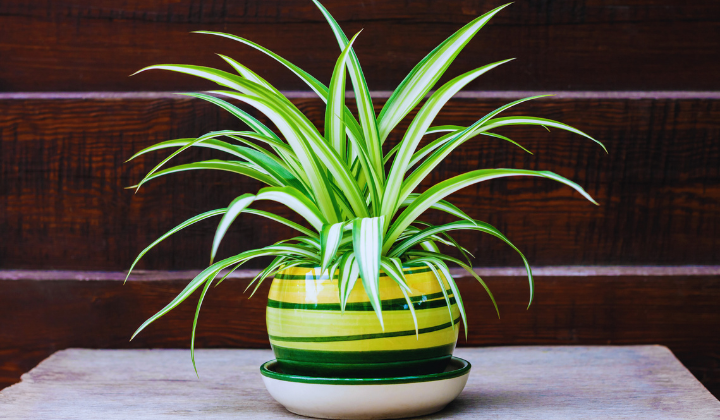
– Manuscript –
Jessica Damiano is an expert at taking care of plants. She writes stories about how to keep plants in good condition for The Associated Press. But even she has killed houseplants.
Damiano said she has killed plants like a Monstera, a snake plant, an African violet and more orchids than she would like to admit.
She said it is not that she does not know how to take care of these houseplants, she just neglected them. She added that the plants are among the hardest to keep alive.
As a result, Damiano chooses houseplants that need the least amount of care for her home. She looks for plants that deal well with too little water, that grow well with limited light, and can be moved around. Also, these sorts of houseplants are best for beginners to grow.
Damiano’s spider plant needs only two things: moderate to bright sunlight and moist soil. She said she keeps it by a window, and she pours in whatever water she has left over from the night. Some days, she does not water the plant. And the spider plant creates many plants for replanting, even with one or two fertilizer treatments a year.
Another plant, a pothos, is perfectly happy nowhere near a window. It gets the light it needs from a kind of light bulb called an LED. She gives the plant a good amount of water each time the soil completely dries out. She said the plant is doing well, with leaves growing halfway to the floor.
Chinese evergreen is a beautiful houseplant that does well in low-light conditions. Damiano said all you need to do is keep the plant’s soil lightly moist at all times and fertilize every other month over the winter and every month for the rest of the year.
Catching Z’s means to sleep. And the ZZ plant, Zamioculcas zamiifolia, requires so little care that you can almost sleep while taking care of it, Damiano said. It does not like a lot of water or bright light. Make sure the soil drains well. The plant actually does best in low-light conditions.
The cast iron plant is about as resistant as its name sounds. Damiano said it does not even want your attention. Avoid providing too much sunlight. It prefers electric light or light from a north-facing window. Permit the soil to dry out between waterings and fertilize every other month in summer and autumn and just once during the winter.
One houseplant, the aloe plant, can be used for treating burns. When needed, just cut open a leaf and use the watery gel from within on an injury. That liquid not only protects burned skin, but also the plant, reducing its dependency on you. Just place it by a window that provides bright, indirect sunlight and water every three weeks, and less often during winter.
Similar plants called succulents share aloe’s ability to store water within their leaves. These sorts of plants usually do well inside where conditions are dry and warm. Most also share aloe’s lack of requirements, making them a good fit for new, or neglectful, plant parents.
Words in This Story
neglect – v. to fail to take care of or to give attention to (someone or something)
moist – adj. slightly or barely wet: not completely dry
bulb – n. a glass tube that produces light when it is supplied with electricity
drain – v. to remove (liquid) from something by letting it flow away or out
gel – n. a thick substance that is like jelly and that is used in various products
*This article has been edited and reprinted from VOA Learning English with permission from Voice of America (VOA) for use in English language materials.
